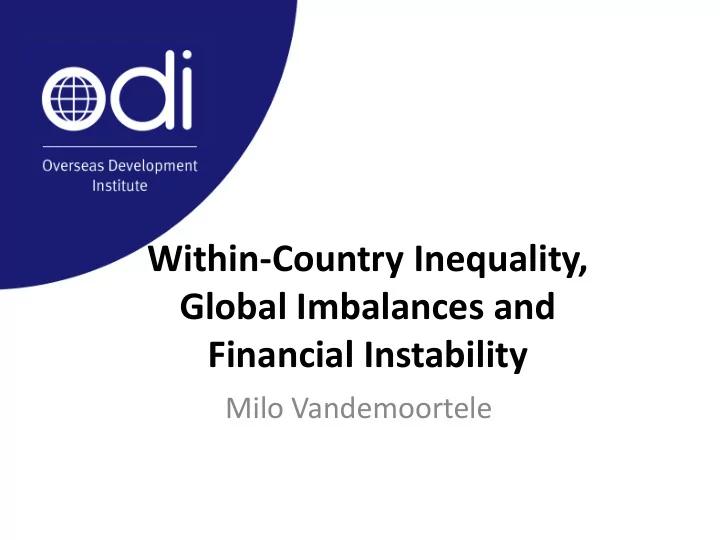

Within-Country Inequality, Global Imbalances and Financial Instability Milo Vandemoortele
Within-Country Inequality • Consequences of rising inequality: – Decreasing in aggregate demand – Socio-political instability • Policies to mitigate against consequences of inequality are pro-cyclical, fuelling financial instability. They include: – Lax regulation – Complex financial instruments – Loose monetary policy
Within-Country Inequality • Pro-cyclicality aggravated by inequalities: – Political stalemate to reduce risk of instability – Endogenous financial instability – Poor and vulnerable investors cannot cover risk – Polarisation engendering the tragedy of the commons
Global imbalances Key links between global imbalances and financial instability: 1. Single national currency as an international borrowing standard 2. Capital flows in an unregulated market can be destabilising 3. Widening imbalances constrain developing countries fiscal space to implement counter cyclical policies
Mutually Reinforcing • Higher inequality within countries perpetuates global imbalances • Higher global imbalances contribute to within- county inequality • Within-country inequality critical in triggering downward spiral
Recommendations: National Level • Policy recommendations at the national level include the following: – Investments in infrastructure and human capital to reduce inequality and promote a sustainable recovery – Countercyclical policies to reduce vulnerability – Institutional reforms, stronger regulation and early warning system in financial sector
Recommendations: International level – Reconsider US$ as an international borrowing standard – Reduce incentives for developing countries to ‘self-insure’ by accumulating reserves – Strengthen and democratise international financial governance – Enhance fiscal space for developing countries
Recommend
More recommend